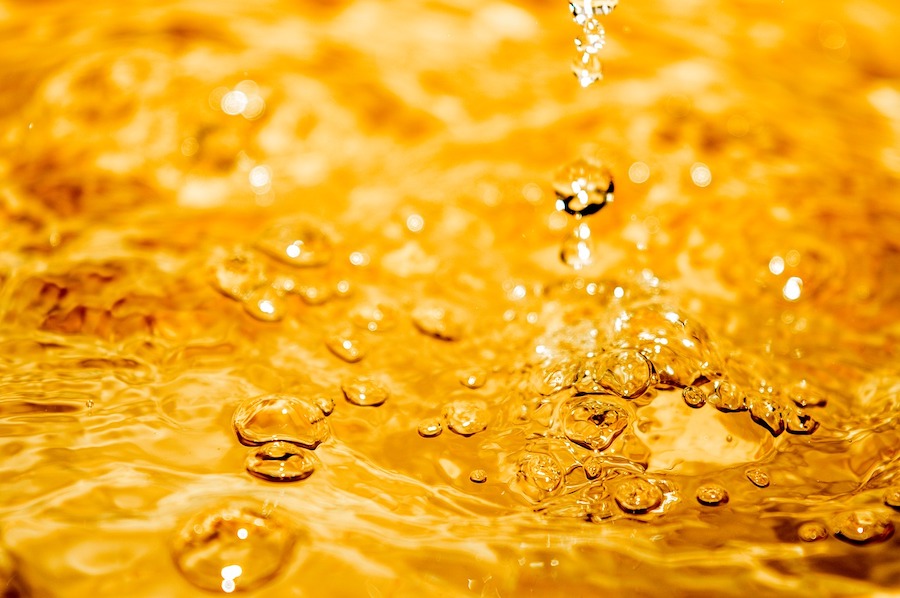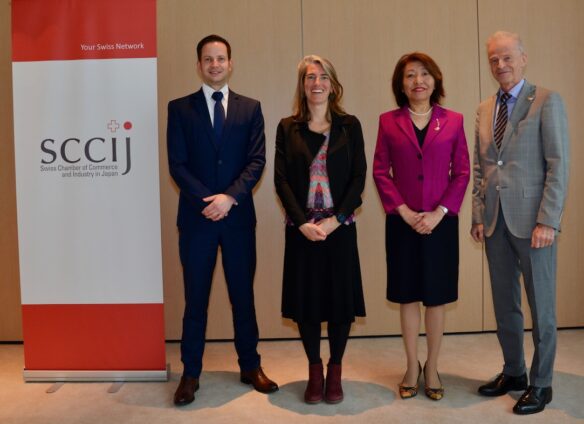Tokyo (SCCIJ) – A Swiss research project to recover gold from wastewater will be established as a start-up company. According to the investment agency Greater Geneva Bern Area, the new endeavor is already looking for industrial partners to build and finance a pilot demonstrator.

A Swiss research group has found a high-yield method to extract gold from wastewater (© Pixabay).
Urban mining
Gold’s high value stems from its rarity, chemical stability, and beauty. However, despite intensive efforts throughout human history to extract gold from the earth, best estimates suggest that to date only 190,000 metric tons of this precious metal have been mined, an amount that would fit into a cube of approximately 20 meters on each side.
Gold can also be found in electronic waste, seawater, freshwater, wastewater, and sewage sludge. So far, no material could effectively extract gold from these sources. But in 2018, a research group at the Swiss Federal Technology Institute Lausanne (EPFL) led by Professor Wendy Queen has designed new sponge materials with microscopic holes.
This porous substance called Fe-BTC/PpPDA could rapidly extract gold from Swiss industrial wastewater, river water, and many other solutions in as little as two minutes. The sponge exhibits record-breaking gold-extraction rates with one gram of gold inside one gram of sponge. Further, due to the sponge’s remarkable selectivity for gold over other metals, the gold extract purity is an impressively high 23.9 karats. This is the highest purity reported to date for such an extraction process.
“We have obtained wastewater and sewage sludge ash from a local wastewater treatment plant and demonstrated that the sponge can effectively remove the gold leaving all other metals behind,” said Professor Queen.
Process optimization
At present, research on this innovation is ongoing at the Energypolis campus in Sion (Canton of Valais). “Our goal is to bring this invention to the market, by finding industrial applications that promote the recycling and re-utilization of gold,” explains Olga Trukhina, a postdoctoral researcher at the Functional Inorganic Materials Laboratory at EPFL Valais.
Various tests carried out with Swiss and foreign companies showed that the “sponge” should also be able to extract gold from huge quantities of iron, copper, nickel, lead, and other heavy metals. The recovery of metals contained in electronic waste such as smartphones and computers is among the other potential sectors of application of this technology. “Our objective is to adapt this compound to these different conditions,” says Trukhina. “The next phase of the project will be to create a pilot demonstrator with industrial partners.”
With 13 laboratories active in the key fields of energy, environment, and health, 218 researchers, administrative and technical staff, and 76 doctoral students with 39 nationalities, the Energypolis campus at the EPFL Valais Wallis plays an important role in promoting research and innovation in the heart of the Alps.
Text: SCCIJ with creative commons material





























